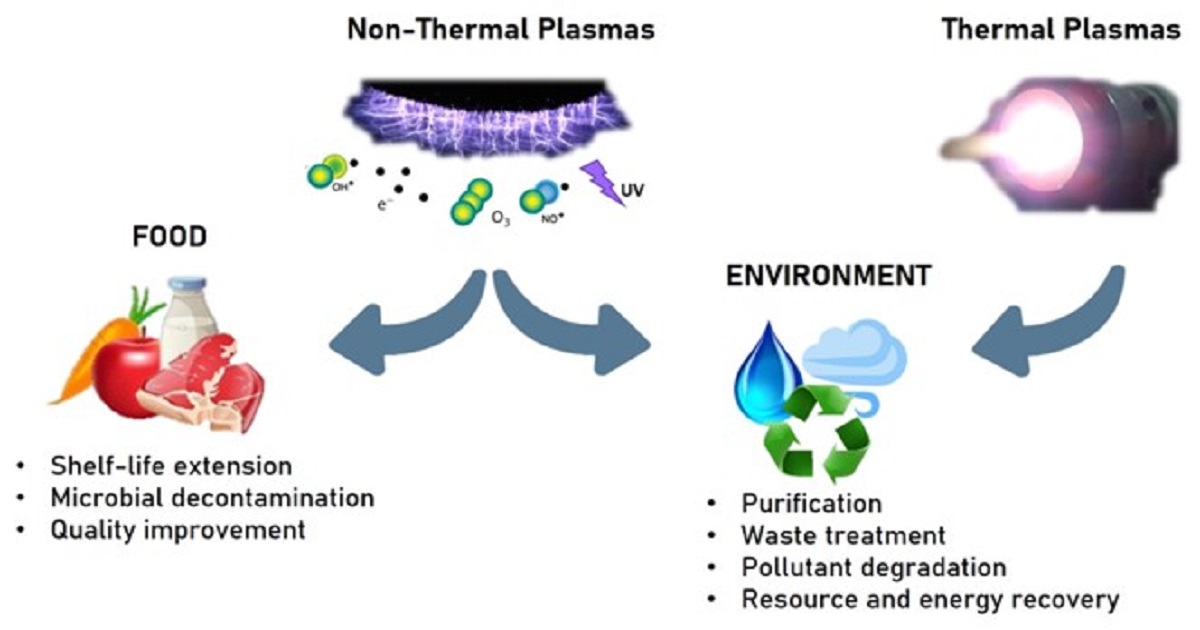Applications of Plasma Technology in Food and Environment
A special issue of Processes (ISSN 2227-9717). This special issue belongs to the section "Environmental and Green Processes".
Deadline for manuscript submissions: 26 May 2026 | Viewed by 96

Special Issue Editors
Interests: plasma-activated water; food quality; microbiology; non-thermal plasma; paw characterization; degradation of organic molecules
Interests: cold plasma; seed pathogen; seed germination; seed quality; plasma activated water
Special Issues, Collections and Topics in MDPI journals
Interests: agricultural applications; cold plasma; food quality; plasma simulation; plasma-activated water
Special Issue Information
Dear Colleagues,
Plasma-based technology has emerged as an energy-efficient, and environmentally friendly alternative with significant applications in food and environmental sciences. In the food sector, non-thermal plasma technologies can be applied to extend shelflife, improve safety through microbial decontamination, and enhance overall food quality. In environmental applications, thermal and non-thermal plasma technologies are used for water and air purification, pollutant degradation, hazardous waste treatment, energy recovery from organic solid waste, and resource recovery. This Special Issue aims to gather original research articles, reviews, and case studies that present recent advances, challenges, and future perspectives of plasma-assisted processes. Special attention will be given to contributions addressing fundamental mechanisms, innovative applications, optimization strategies, process scale-up, and interdisciplinary approaches that integrate plasma technology in food and environmental fields.
Dr. Brenda L. Fina
Dr. Leandro Prevosto
Dr. Ezequiel Cejas
Guest Editors
Manuscript Submission Information
Manuscripts should be submitted online at www.mdpi.com by registering and logging in to this website. Once you are registered, click here to go to the submission form. Manuscripts can be submitted until the deadline. All submissions that pass pre-check are peer-reviewed. Accepted papers will be published continuously in the journal (as soon as accepted) and will be listed together on the special issue website. Research articles, review articles as well as short communications are invited. For planned papers, a title and short abstract (about 250 words) can be sent to the Editorial Office for assessment.
Submitted manuscripts should not have been published previously, nor be under consideration for publication elsewhere (except conference proceedings papers). All manuscripts are thoroughly refereed through a single-blind peer-review process. A guide for authors and other relevant information for submission of manuscripts is available on the Instructions for Authors page. Processes is an international peer-reviewed open access semimonthly journal published by MDPI.
Please visit the Instructions for Authors page before submitting a manuscript. The Article Processing Charge (APC) for publication in this open access journal is 2400 CHF (Swiss Francs). Submitted papers should be well formatted and use good English. Authors may use MDPI's English editing service prior to publication or during author revisions.
Keywords
- non-thermal plasma
- thermal plasma
- plasma activated water
- environmental applications
- food control
- pollutant degradation
- sustainable processing
- water and air purification
- resource recovery
- energy recovery
Benefits of Publishing in a Special Issue
- Ease of navigation: Grouping papers by topic helps scholars navigate broad scope journals more efficiently.
- Greater discoverability: Special Issues support the reach and impact of scientific research. Articles in Special Issues are more discoverable and cited more frequently.
- Expansion of research network: Special Issues facilitate connections among authors, fostering scientific collaborations.
- External promotion: Articles in Special Issues are often promoted through the journal's social media, increasing their visibility.
- Reprint: MDPI Books provides the opportunity to republish successful Special Issues in book format, both online and in print.
Further information on MDPI's Special Issue policies can be found here.







